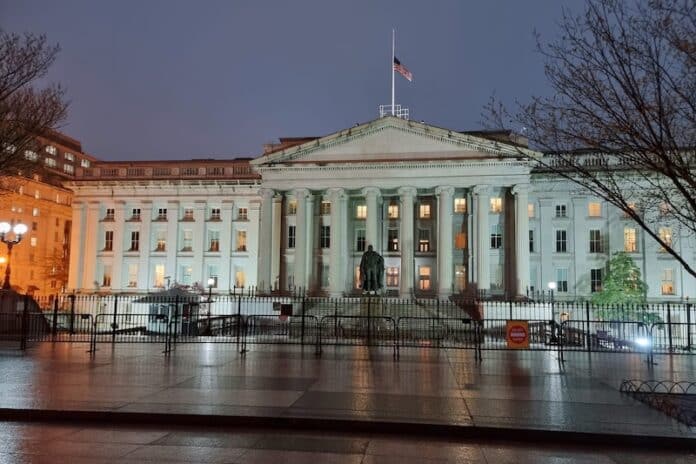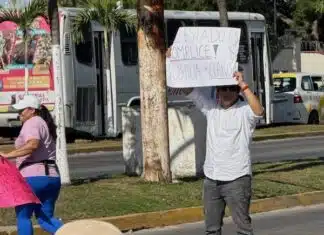Esta publicación también está disponible en: English Español
The U.S. Treasury Department has imposed sanctions on three Mexican financial institutions — Intercam Banco, CIBanco, and Casa de Bolsa Vector — over alleged links to money laundering for criminal groups involved in fentanyl trafficking.
The action, announced June 25, 2025, in a press release, is already raising concerns for American residents and small businesses in Puerto Vallarta who rely on these institutions for day-to-day financial services.
The U.S. Treasury’s Office of Foreign Assets Control (OFAC) and Financial Crimes Enforcement Network (FinCEN) alleged the institutions provided services that facilitated financial flows for Mexico-based drug trafficking organizations, including the Jalisco New Generation Cartel (CJNG), a group the U.S. has designated as a foreign terrorist organization.
“These three institutions allowed the cartels to move drug money, including payments tied to precursor chemicals used in fentanyl production,” said Brian E. Nelson, Under Secretary of the Treasury for Terrorism and Financial Intelligence. “They enabled cartels like CJNG to continue flooding U.S. communities with deadly narcotics”.
U.S. Sanctions Target Transfers From USA
FinCEN, which administers financial crimes policy under the Treasury, said CIBanco and Intercam, commercial banks with over $7 and $4 billion in total assets, respectively, and Vector, a brokerage firm managing nearly $11 billion in assets, have collectively played a longstanding and vital role in laundering millions of dollars on behalf of Mexico-based cartels and facilitating payments for the procurement of precursor chemicals needed to produce fentanyl.
As described in FinCEN’s orders, covered financial institutions are prohibited from engaging in transmittals of funds from or to CIBanco, Intercam, or Vector, or from or to any account or convertible virtual currency address administered by or on behalf of CIBanco, Intercam, or Vector.
In response, all three banks denied the allegations.
“We categorically deny any association between this institution and any illicit activity — particularly money laundering — and reiterate our firm commitment to transparency and legality,” the Intercam bank said in a statement emailed to clients. “Intercam Banco, for nearly 30 years, has operated in full compliance with all regulations established by national and international authorities.”
The bank also emphasized that it continues to operate normally and assured clients that their deposits are secure.
“We remind our clients that their deposits are protected by the IPAB [Instituto para la Protección al Ahorro Bancario], and that investment instruments are safeguarded by INDEVAL [Instituto para el Depósito de Valores],” the bank said. “The statement issued by the U.S. Department of the Treasury explicitly excludes Intercam’s U.S.-based subsidiaries.”
Intercam stated it is working closely with the Mexican Ministry of Finance and Public Credit (SHCP), the Bank of Mexico, and the National Banking and Securities Commission (CNBV).
Mexican Authorities Request Evidence
Mexico’s Ministry of Finance issued its own informational note on June 25, confirming that it had requested supporting evidence from the U.S. Treasury. According to the SHCP, the only verifiable information provided involved ordinary commercial transfers to legally established Chinese companies — activity it described as part of Mexico’s normal economic ties with China, which exceed $139 billion USD annually.
“To date, we have not received any probative information that confirms illegal conduct by these institutions,” the SHCP stated.
The Mexican government added that it had initiated its own regulatory reviews, resulting in administrative sanctions totaling 134 million pesos (approx. $7.2 million USD) for compliance violations.
What This Means for Americans in Mexico
The FinCEN order prohibits U.S.-based banks and money services — including those used for international wire transfers — from conducting transactions with Intercam Banco in Mexico. This could disrupt financial arrangements for American retirees, remote workers, or property buyers who use Intercam for cross-border banking.
Notably, the U.S. sanctions do not apply to Intercam’s U.S.-based affiliates, such as its bank in Puerto Rico or its wealth management firms in Florida.
Esta publicación también está disponible en: English Español















